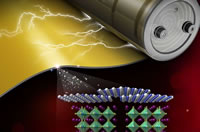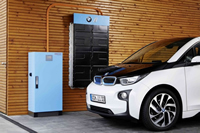Majority of Consumers Zeroing in on Exactly How They Want to Use an Electric Car, New Survey from MINI USA Finds
Are Solar-Powered Cars the Future?
AFC Energy Powers Up World's First Hydrogen Electric Vehicle Charger
Alta Devices Breaks Solar Energy Efficiency Record
Fisker Inc.'s Scientists File Patents on Superior Energy Density Tech, Shattering Conventional Thought on EV Range and Charge Times
Powering the Future of Mobility
Musk's Tesla Is Promising the World Clean Energy One Loss at a Time
Panasonic's Photovoltaic Module HITTM Adopted for Toyota Motor's New Prius PHV
Solar Power Meets Electric Vehicle Atop a VW Microbus
Electric Vehicles: Next Comes the Melodrama
'Ideal' energy storage material for electric vehicles developed
BMW electric-car batteries to be used as home energy-storage devices
Swedish solar energy expert Midsummer receives funding from Mistra for development of lightweight solar modules on vehicles
sonnen announces the world's cheapest electric vehicle
eMotorWerks Announces a Universal Adapter That Converts Any Level 2 EV Charging Station into a Smart Charging Station
Records 16 to 30 of 46
First | Previous | Next | Last
Featured Product






.png)



